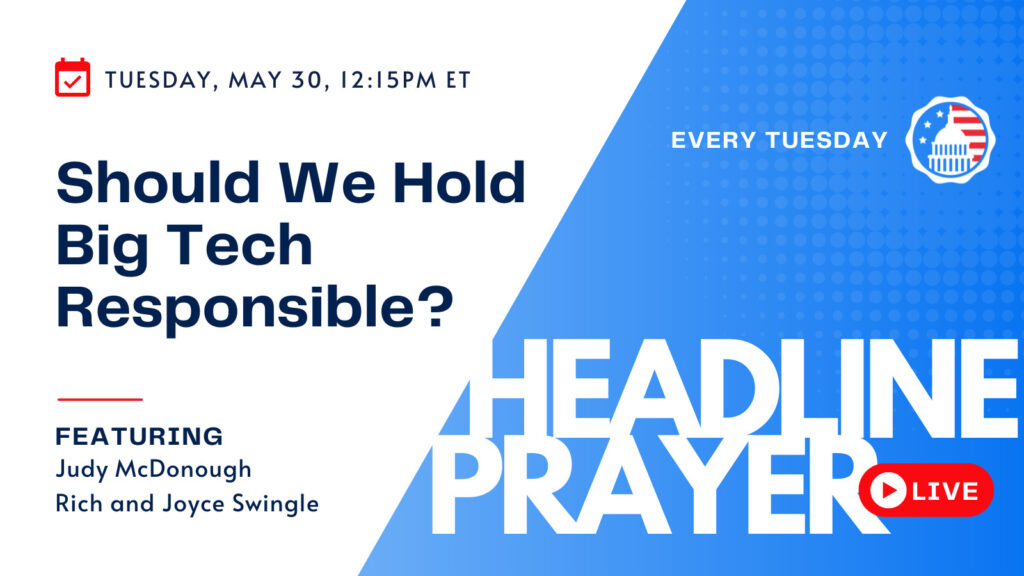
Analysis. Big-tech leaders are able to breathe a sigh of relief. The U.S. Supreme Court recently sided with them against charges that they are responsible for user-generated content on their platforms in a pair of cases stemming from terrorist attacks. At the same time, the justices sidestepped another matter that many had hoped they would address: the breadth of the decades-old big-tech liability shield known as Section 230.
This content is supported by your donations.
Give today.
In Twitter v. Taamneh, the high court ruled unanimously against the family of Nawras Alassaf, who was killed by ISIS during an attack on a nightclub in Istanbul in 2017. The family believed Twitter was at fault under a federal antiterrorism law that holds liable anyone who “aids and abets, by knowingly providing substantial assistance,” such as terrorism. However, the justices found the family’s argument lacking.
Justice Clarence Thomas, writing for the entire court, distilled the arguments down to one that asserts no intentional action on the part of the platforms, but rather a failure to stop ISIS from using the tech tools.
“The mere creation of those platforms, however, is not culpable,” Thomas wrote. “To be sure, it might be that bad actors like ISIS are able to use platforms like defendants’ for illegal — and sometimes terrible — ends. But the same could be said of cell phones, email, or the internet generally.”
In addition to dismissing that general liability, it is significant that Thomas also appeared to question platform responsibility for its content-recommendation algorithms — the processes by which certain posts are suggested to particular users. At least in this case, he suggested that the recommendation algorithms were “agnostic” and that the tech companies took no proactive action on behalf of ISIS.
As it disposed of the Twitter case, the court also quickly turned back a second, even more high-profile case. Gonzalez v. Google centers on the death of a 23-year-old American woman killed during a terrorist attack in Paris in 2015. The victim’s family held that Google-owned YouTube aided the terrorists by recommending ISIS videos through its algorithms. Google, however, contended that its Section 230 shield protects its video recommendations and that restrictions on the liability defense would damage the internet as we know it.
Section 230 of the Communications Decency Act, which was enacted in the early days of the internet, essentially ensures that web users are responsible for their own speech online. It protects platforms large and small from being sued to death for user engagement — a hallmark of the free and open internet — and it also provides legal cover for good Samaritan efforts to remove offensive content.
During oral arguments in the Gonzalez case, Google’s attorney told the justices that tampering with the 230 shield could lead internet platforms to leave all content up, which, she said, “just defeats the whole point, and you basically have the internet of filth, violence, hate speech, and everything else that’s not attractive.” Alternatively, platforms might take down anything even remotely objectionable to anyone and “you have the Truman Show versus a horror show.”
That logic may be compelling, particularly given the track record of the internet’s growth within the relative freedom of the U.S. system. But many observers from across the ideological spectrum are growing more and more concerned that Section 230 is being abused by tech giants as they promote or disadvantage certain content.
Many eyes were on this case. Would the court rein in the use of the liability shield? The possibility was there, but a comment during the oral argument by Justice Elena Kagan may have projected what was to come.
“[E]very other industry has to internalize the costs of its conduct. Why is it that the tech industry gets a pass? A little bit unclear,” Kagan said. “On the other hand, I mean, we’re a court. We really don’t know about these things. You know, these are not like the nine greatest experts on the internet.”
Ultimately, the justices chose simply to punt on making any determination about Section 230. In a short, unsigned statement, the court sent Gonzalez v. Google back to a lower court to be reviewed in light of the Twitter ruling, with the suggestion that the case was unlikely to survive on such terrorism liability grounds.
Google, of course, welcomed the news. “Countless companies, scholars, content creators and civil society organizations who joined with us in this case will be reassured by this result,” Google’s general counsel said.
Similarly, Sen. Ron Wyden, D-Ore., one of the architects of the liability shield decades ago, tweeted: “This is good news. Despite being unfairly scapegoated for everything wrong with the internet, Section 230 remains vitally important to protecting online speech. My focus remains helping end abusive practices by tech companies while protecting freedom of information online.”
Others, however, are not so pleased. Senate Judiciary Committee Chairman Dick Durbin, D-Ill., called the ruling “disappointing but unsurprising,” before adding: “Enough is enough. Big Tech has woefully failed to regulate itself. Congress must step in, reform Section 230, and remove platforms’ blanket immunity from liability.”
On the other side of the aisle, Sen. Josh Hawley, R-Mo., who has long contended against what he calls “a sweetheart deal that no other industry enjoys,” tweeted that the court ruling was a “missed opportunity” and “all the more reason for Congress to act” on Section 230.
“I’d just end it,” Hawley told FOX Business. “Make them compete like everybody else.”
Concerns about big tech’s hiding behind Section 230 are not going to disappear. Our leaders will need your prayers for much wisdom to get this important area of law right.
How are you praying about big tech and Section 230? Share this article to encourage others to pray.
Aaron Mercer has two decades of experience in the Washington, D.C., public-policy arena. Photo Credit: Canva.

